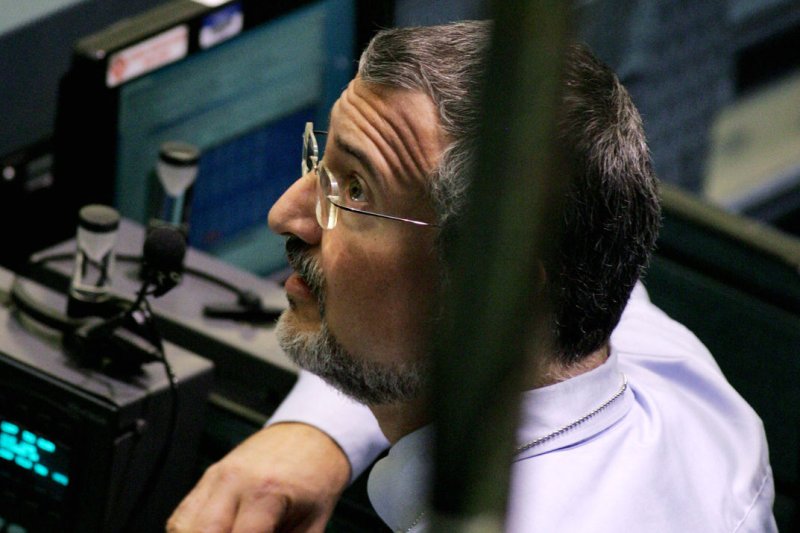Strong demand from Asian economies and a risk premium from an expected announcement on Iran from U.S. President Trump sent oil prices into rally mode on Friday. File photo by Monika Graff/UPI. |
License Photo
Oct. 13 (UPI) -- A geopolitical risk premium and signs of growing demand in the Asian economies helped drive crude oil prices sharply higher Friday, wrapping up a volatile week.
Crude oil prices see-sawed wildly during the data-heavy week. Economists at the Organization of Petroleum Exporting Countries sparked a rally Wednesday with a report on a balancing market, though gains were more or less erased on Thursday when the International Energy Agency said that balance was fragile.
Traders are watching supply and demand figures closely. OPEC is leading an effort to balance an oversupplied market, which is supporting crude oil prices that dropped below $30 per barrel last year because of supply-side strains.
U.S. data this week showed a short-term swing toward the supply side, though China, the world's second-largest economy in the world, reported oil imports last month at their second highest level on record. Exports, meanwhile, surged higher than expected at 9.1 percent.
"The export number would have been larger if it were not for sanctions on North Korea," Phil Flynn, a senior market analyst for the PRICE Futures Group in Chicago, said in an emailed market report. "China imported an average of 100,000 barrels of crude a day from the United States during the first five months of 2017, 10 times the level for the same period last year."
China's energy appetite matters because of the size of its economy. The country's central bank said Friday it was injecting more money into the financial stream in order to defuse risk and shore up the economy, China's official Xinhua News Agency reported.
India, meanwhile, is on pace to challenge China's appetite because the pace of economic growth is stronger. That could challenge a sentiment from the IEA that supply and demand will be more or less even next year.
The price of Brent crude oil was up 2 percent at 9:20 a.m. EDT to $57.41 per barrel. West Texas Intermediate, the U.S. benchmark for the price of oil was up 2.1 percent to $51.69 per barrel.
Joe McMonigle, a senior energy analyst at Hedgeye Risk Management, told UPI the risk that U.S. President Donald Trump will say later Friday that he won't certify Iran's nuclear compliance with a multilateral nuclear agreement could represent a risk premium of as much as 1 percent to Friday's rally.
"The decertifying of the Iran deal is the biggest geopolitical catalyst for higher oil prices we've seen in years and OPEC will be quietly cheering for it," he said.
Iran has opened its doors to foreign investors since the agreement was reached. Trump's decision would be in stark contrast with the global pulse. The British government said this week the agreement eliminated the nuclear threat from Tehran.
McMonigle said European companies would have to honor whatever sanctions pressures result from Trump's decision.
"European energy companies will abide by U.S. sanctions regardless of what the EU says or does so we expect close to a million barrels a day of Iranian crude to be removed from the market," he said.















